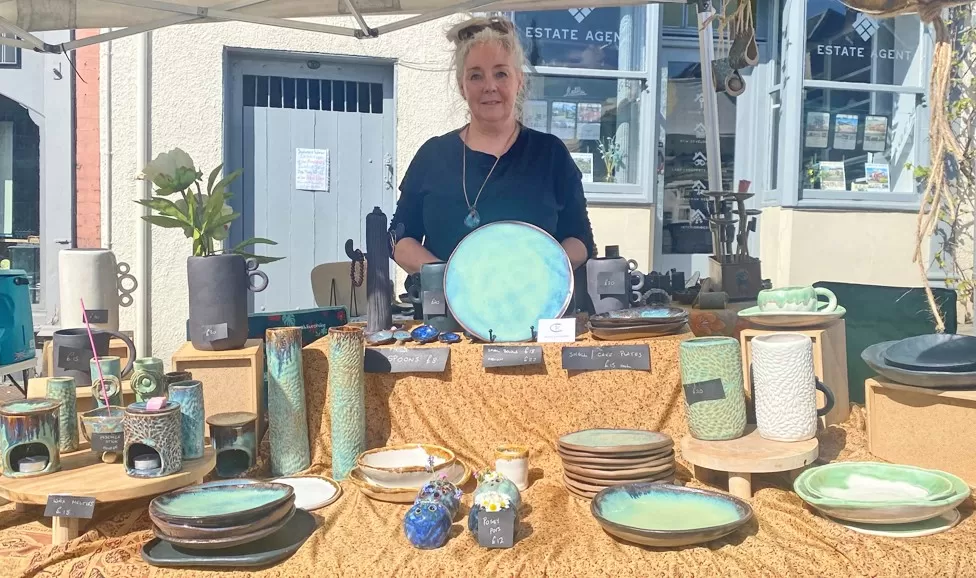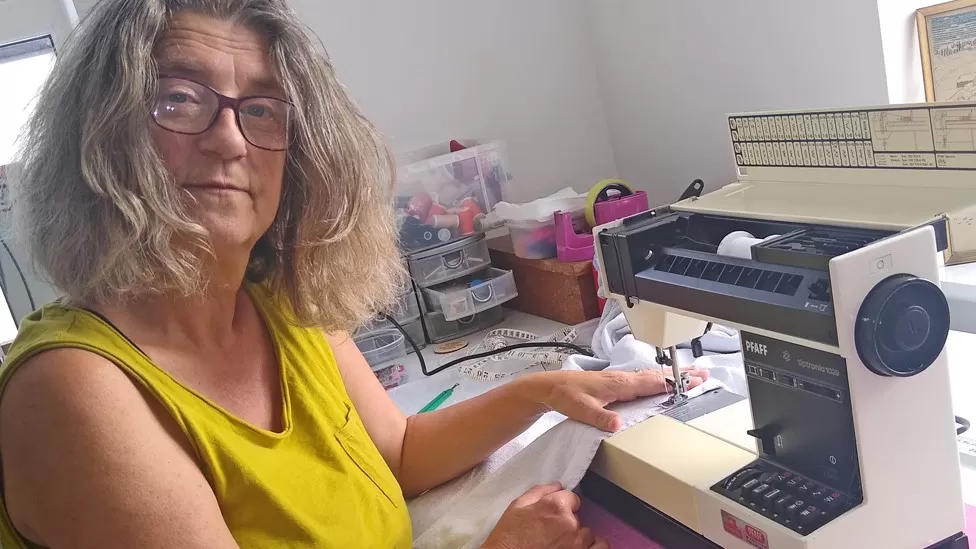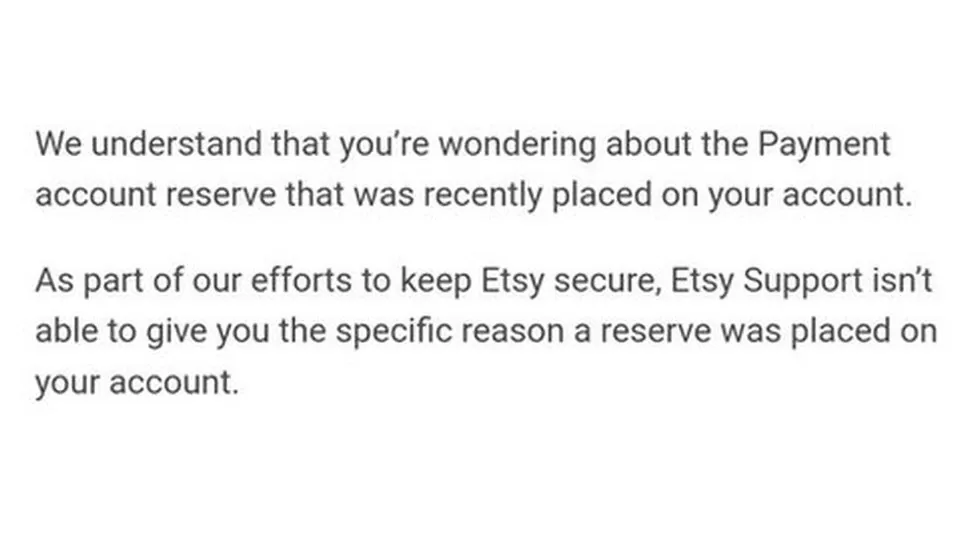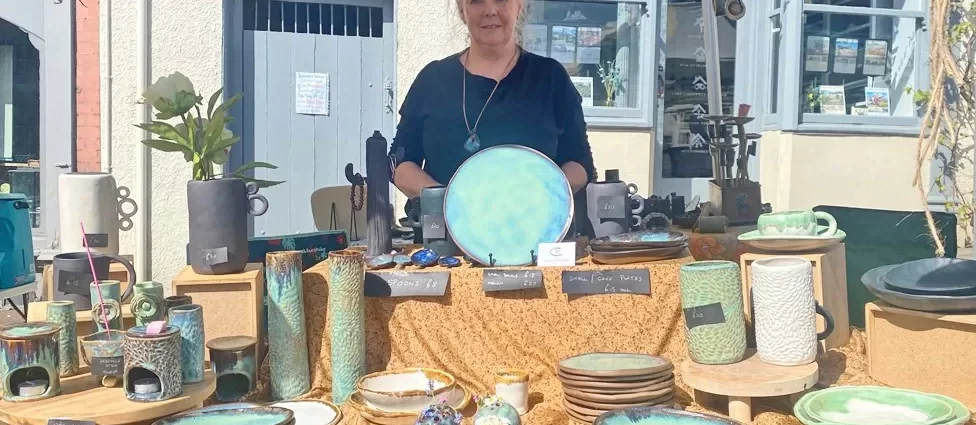Etsy accused of ‘destroying’ sellers by withholding money

Etsy, an online marketplace, has come under fire from vendors for holding back 75% of their sales for 45 days.
Recently, Etsy sent emails to hundreds of small businesses informing them that its “reserve system” was now operational.
According to ceramics vendor Rachel Collyer, Etsy is keeping £899 of her money, which prevents her from purchasing supplies to continue creating.
Payment reserves, according to Etsy, are used to “keep the marketplace safe” and pay for any conceivable returns.
Since 2021, Ms. Collyer has been selling ceramics on Etsy. She said that she received very little advance notice before her funds were placed in reserve.
I can’t afford to buy any clay or glazes, and this is destroying my business. We may need to relocate because

According to Etsy’s payment policy, among the causes for placing money on hold are a sharp rise in sales, a store that has just made its first sale, the business breaking “policy,” or “other risk factors.”
Some vendors claimed to the BBC that they were subjected to two consecutive reserve periods.
Dan, who sells custom-made wood furniture on the website, told the BBC that he was unsure of the reason for the withholding of his funds.
The 44-year-old from Buckinghamshire said, “Etsy are holding about £7,000 of my money, leaving us to use credit cards and family loans to try and keep our business running and keep food on the table.”
There is no possibility to have the reserve lifted within the allotted 90 days, Sam, his partner, added.

Joanna, who operated a custom underwear business on Etsy, told the BBC that she, too, saw no justification for her payments being withheld so abruptly.
“I have been selling [on Etsy] for four years,” she claimed. “I received a letter this morning informing me that 75% of my sales will be held in reserve for a 90-day period for my account.
She added that even after following the website’s instructions on removing the reserve, her account was not restored to normal. “We have no cases against us, and we have performed no malpractice in any way,” she claimed.
She would have made £5,000 this month, according to the 62-year-old, and she is unable to get a loan while she waits for the money.

“I canceled all of my reservations and closed my shop for the day. I won’t engage in commerce with them. I simply cannot,” she responded.
And nearly immediately after the reserve was put in place, it was removed. She never heard why either choice was made.
After Silicon Valley Bank (SVB) failed earlier in the year, payments to Etsy sellers were delayed.
Some of the people who sell things on Etsy were paid using SVB.
However, Etsy claimed that only a small percentage of vendors experienced pay-out delays due to the collapse.
Boycott
The BBC spoke to more than 20 sellers who had similar complaints. One, a disabled seller for whom Etsy is her only source of income, said the company stated it was taking “no complaints” on the issue. Etsy told her it “isn’t able to give… [a] specific reason” for withholding thousands of pounds of her takings.
Many sellers wished to remain anonymous for fear of having their shops taken off the platform. The BBC has seen complaints about the reserve system from the US and various countries in the EU.
“If you challenge them or speak out, or don’t accept their terms and conditions, your account becomes disabled,” one independent UK seller told us.
Etsy disputes this and says that it wouldn’t retaliate against a seller for voicing their opinion. It says it takes seller feedback very seriously.
Hundreds of affected Etsy sellers are planning a “strike”, or boycott and are organising on various online groups.
An Etsy spokesperson said that the vast majority of sellers receive their funds when they make a sale. They added that the reserve system was used by many online sellers.
However, Amazon’s level of reserve is much lower, at around 3% for established sellers until any disputes are resolved.
The Small Business Commissioner, Liz Barclay, said Etsy’s “level of reserve is new to us”.
She added that while she had no remit across complaints made against non-UK companies, “there have been more complaints recently” made against the US-based firm.
Ms Barclay said the commission was receiving reports of “many small firms owed several thousands of pounds”, which was “heart breaking at a time when people are struggling with the rising cost of living on top of huge increases in costs of business bills and materials”.
“My big worry is that for hundreds of thousands of businesses, this is their only source of income. Anecdotally, we hear that many sellers are women or minority groups and they need this money to pay the bills,” Ms Barclay said
Who owns Etsy?
On the online market place Etsy, independent vendors can open their own stores. It specializes in custom items, handicrafts, and products that aren’t frequently found in High Street stores.
Etsy Inc. is a US-based business that lists its stock on the NASDAQ in New York in 2015. Etsy Inc. began trading on the NASDAQ in 2015. Etsy’s shares are currently only worth $99 each, a significant decline from their all-time high of $294 reached in 2021 during the Covid epidemic.
Major financial institutions including Vanguard Group, BlackRock, and JP Morgan are among its largest owners.
Josh Silverman, the chief executive of the company, has held executive positions in a diverse range of companies, including American Express, the internet chat provider Skype, and the online auction site eBay.
‘Deeply concerned’
Online retail specialist Martyn James stated that although holding onto funds until the buyer received the item made sense, “the business should not be sitting on money for any longer as a fraud prevention measure.”
He stated that he was “deeply concerned” about Etsy deducting money from sellers in this manner and stated that it was an illustration of how internet businesses may “slip through the cracks of regulation”.
Sites should provide sellers with consistency and transparency when it comes to handling their payments, according to Tina McKenzie, policy chair at the Federation of Small Businesses.
Online marketplaces for small enterprises, she continued, “hold a lot of power over the sellers” and should thus “use their power responsibly.”





